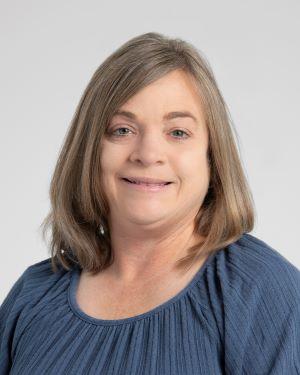Center for Immunotherapy & Precision Immuno-Oncology
Discovery Lab
-
Discovery Lab
- About Us
- Our Team
- Assays & Technology
- Publications
About Us

The Center for Immunotherapy & Precision Immuno-Oncology's (CITI) Discovery Lab is one of three collaborative CITI fee-for-service platforms dedicated to the advancement of cancer and immunologic research using high-throughput technologies. The lab provides services for a spectrum of research projects ranging from immuno-oncology to transplantation, as well as cardiac, metabolic, neurologic, and autoimmune diseases.
The Discovery Laboratory offers cutting-edge high-throughput technologies, immunologic testing, and next generation sequencing (NGS)-based platforms and possesses the expertise to guide investigators through the fast-paced landscape of cutting-edge genomic technologies to advance patient-centric research.
Dr. Raghvendra Srivastava, PhD, Scientific Director of the CITI Discovery Lab, leads this laboratory and works in collaboration with academic, clinical and industry leaders, engaging in translational research in Cleveland and across the United States. The Discovery Lab performs in-house HLA class I/II typing, single cell RNA library preparations and quality control, neoantigen screening assays, immune repertoire (TCR/BCR) sequencing services (in-house and send-out), NGS library preparation for immuno-sequencing projects, and multiplex cytokine/chemokine assays using the Luminex platform. The Discovery Lab also supports all bioanalytical requirements to sequence custom-made libraries.
A unique facet of the CITI Integrated Platforms is the seamless harmonization with computational genomic and transcriptomic data analysis, as the Discovery lab works together with the CITI Computational Immunology Platform (CIP) team.
To initiate a project request or consultation for CITI platform services, visit Cleveland Clinic's "CITI Integrated Platforms: Immunomonitoring/Discovery/Computational" in Agilent's iLab.
Interested in learning more? Contact us today at [email protected].
Our Team

Raghvendra Srivastava, MSc, MTech, PhD
Project Staff
[email protected]
As Scientific Director of the CITI Discovery lab, Dr. Srivastava leads translational immuno-oncology-based fee-for-service assays, including, but not limited to, HLA and TCR sequencing and neo-antigen screening methods. In 2020, he moved to the Cleveland Clinic from the Memorial Sloan Kettering Cancer Center, where he worked on single cell sequencing projects as a Senior Research Scientist in Dr. Tim Chan’s lab. Raghu earned his PhD in cancer immunology at the Centre for Cellular and Molecular Biology in Hyderabad, India. He started his career as a Project Assistant at the Central Drug Research Institute, where he focused on structural immunology in the design and synthesis of biologically active peptides for antibacterial and anti-inflammatory application. He then served as a research associate at the University of Pittsburgh, where he contributed to the discovery of novel immunological mechanisms for EGFR targeted drugs.



Assays & Technology
Nucleic Acid Extraction, Quantification, and Quality Control

The Discovery Lab provides services such as RNA or DNA extraction, quantification, and quality control to ensure that NGS sample content achieves the desired sequencing depth and base pair coverage. It houses instruments such as the Thermo Fisher Scientific Qubit for nucleic acid quantification and the Agilent Tapestation and Agilent 2100 Bioanalyzer for nucleic acid quality control. The DL also houses the BioMérieux eMAG® system, a molecular biology platform for high throughput nucleic acid extraction of clinical grade samples – an automated system that can process 48 samples simultaneously and is used in the clinical laboratory for the extraction of DNA and RNA from patient tissue.
Next Generation Immuno-Sequencing

The Discovery Lab utilizes the MiSeq Illumina sequencing system for next generation DNA sequencing. It integrates cluster generation, sequencing, and data analysis, allowing up to 30 million reads in a single run and combining proven sequencing by synthesis (SBS) technology with a workflow from DNA to data analysis in just a few hours. This sequencing platform allows for flexibility and quick access for targeted re-resequencing, 16S metagenomics, and small genome sequencing and has a broad range of applications in immunotherapy.
Human Leukocyte Antigen (HLA) Typing is being performed in-house using CareDx AlloSeq Assign software for data output. This HLA sequencing assay permits investigators to characterize and identify HLA genotypes for research use only.
T Cell Receptor (TCR) Sequencing is being performed in partnership with Adaptive Biotechnologies Corporation via their DNA-based ImmunoSEQ assay. The Discovery Lab also offers in-house TCR sequencing using Integrated DNA Technologies' ArcherDx Immunoverse with RNA as input material. Archer Immunoverse Technology utilizes an FFPE-optimized strategy for TCR beta/gamma, TCR alpha/delta, and Ig heavy chain sequencing in FFPE archived tissues. It can be used to profile tumor-infiltrating lymphocytes and to compare TCR diversity in the tumor and in circulation. The Discovery Lab also assists with dynamic visualization and a full data export in order to best interpret complex research questions.
The Discovery Lab also collaborates with the Broad Institute of MIT and Harvard, as well as the Yale Center for Genome Analysis, for the following services:
Whole Exome Sequencing and Whole Genome Sequencing, Whole Transcriptome Sequencing (mRNA) for fresh/frozen tissue, and Transcriptome Capture for formalin fixed paraffin embedded (FFPE) tissue samples.
Soluble Factor Profiling

Luminex 200 Multi-Analyte Bioassay Detection System
DL utilizes the Thermo Fisher Luminex™ 200™ System to analyze soluble factors, including protein and gene expression profiling, for laboratory and clinical trial specimens, which can reveal novel biomarkers that help to understand disease mechanisms, immune cell activation states, cellular crosstalk, and resistance mechanisms.
ELISPOT & ImmunoSpot
CTL's ImmunoSpot® is a software tool for analyzing ELISPOT assay data. Its flexible yet user-friendly environment provides a wide array of powerful features geared towards maximizing productivity and minimizing the amount of user effort required. ImmunoSpot® employs an intuitive, five-step analysis procedure designed to automate as much of the counting and documentation process as possible without sacrificing flexibility. This same procedure also allows multiple plate images to be loaded simultaneously for analysis. This combination of automation and versatility permits genuine "walk-away" plate processing, allowing ImmunoSpot® to process massive amounts of diverse plate data without any human intervention.
Single Cell Transcriptomics

The Discovery Lab performs single cell RNA library preparation and quality control on a variety of cancer tissues, core biopsies, and blood to prepare genomic libraries for gene expression and utilizes the 10X Genomics' Chromium Controller. This high throughput state-of-the-art technology can interrogate cellular heterogeneity and gene expression, dissect intrinsic variation in TCR repertoire, define cellular states, and spatially resolve single cells to interrogate biological mechanisms.
Neoantigen Screening Platform
Cancer neoantigen-specific T cells play a dominant role in determining the efficacy of PD-1, CTLA-4, and PD-L1 immune checkpoint blockade. The Discovery Lab performs the screening and validation of neoantigens by utilizing a tandem minigene approach to clone and prepare transcripts of detected mutations in patients. The lab transfects RNA containing mutations into patients' dendritic cells and detects neoantigen-specific autologous T cells, which can recognize mutations in tumors and destroy cancerous cells. The neoantigens identified through these protocols are used as peptide vaccines for patients with advanced cancer.
Publications
- Krishna C, Dinatale RG, Kuo F, Srivastava RM, , Vuong L, Chowell D, Gupta S, Purohit TA, Liu M, Kansler E, Nixon BG, Chen Y-B, Makarov V, Blum KA, Attalla K, Weng S, Salmans ML, Golkaram M, Liu L, Zhang S, Vijayraghavan R, Pawlowski T, Reuter V, Carlo MI, Voss MH, Coleman J, Russo P, Motzer RJ, Li MO, Leslie CS, Chan TA, Hakimi AA. Single cell sequencing links multiregional immune landscapes and tissue resident T cells in clear cell renal cell carcinoma to tumor topology and therapy efficacy. Cancer Cell. 2021. Apr 12; S1535-6108(21)00165-3. DOI: 10.1016/j.ccell.2021.03.007.
- Samstein RM, Krishna C, Ma Xiaoxiao, Xin P, Lee K-W, Makarov V, Kuo F, Chung J, Srivastava RM, Purohit TA, Chung J, Hoen DR, Mandal R, Setton J, Wu W, Shah R, Qeriqi B, Chang Q, Kendall S, Braunstein L, Weigelt B, Albornoz, PBC , Morris LGT, Mandelker DL, Reis-Filho JS, Stanchina E, Powell SN, Chan TA, Riaz N. Mutations in BRCA1 and BRCA2 differentially affect the tumor microenvironment and response to checkpoint blockade immunotherapy. Nature Cancer. 2020. Nov.16. https://doi.org/10.1038/s43018-020-00139-8.
- Yang W*, Lee K-W*, Srivastava RM*, Kuo F, Krishna C, Chowell D, Makarov V, Dalin MG, Wexler L, Ghossein R, Katabi N, Nadeem Z, Cohen MA, Tian SK, Robine N, Arora K, Geiger H, Bouvier N, Huberman K, Vanness K, Havel JJ, Samstein RM, Mandal R, Tepe R, Ganly I, Ho AL, Riaz N, Wong RJ, Shukla N, Chan TA, Morris LGT. Immunogenic neoantigens derived from gene fusions stimulate T cell responses Nature Medicine. 2019. May; 25 (5): 767-775. (*Joint 1st author)
Nature Review Cancer research highlight: Hindson J. Gene-fusion neoantigens stimulate T cells. https://doi.org/10.1038/s41568-019-0160-6.
Cancer Discovery research watch: Oncogenic gene fusion derived neoantigens elicit specific T- cell responses. DOI: 10.1158/2159-8290.CD-RW2019-065. - Mandal R, Samstein RM, Lee Ken-Wing, Havel JJ, Wang H, Krishna C, Sabio EY, Makarov V, Kuo F, Blecua P, Ramaswamy AT, Durham JN, Bartlett B, Xiaoxiao Ma, Srivastava RM, Middha S, Zehir A, Hechtman JF, Morris LGT, Weinhold N, Riaz N, Le DT, Diaz Jr. LA, Chan TA. Genetic diversity of tumors with mismatch repair deficiency influences tumor evolution and response to PD-1 blockade.Science. 2019. May 3,364 (6439), 485-491.
- Srivastava RM, Purohit TA, Chan TA ( Review) Diverse neoantigens and the Development of Cancer therapies. Seminars in Radiation Oncology. 2020. 30(2). 113-128
- Bessell CA, Isser A, Havel JJ, Lee S, Bell D, Hickey JW, Chaisawangwong W, Bieler JG, Srivastava RM, Kuo F, Purohit TA, Zhou R, Chan TA, Schneck JP. Commensal bacteria stimulate anti-tumor responses via T cell cross-reactivity JCI Insight. 2020. Apr 23; 5(8): e135597.
- Srivastava RM, Marincola FM, Shanker A.Editorial article: Lymphocyte functional crosstalk and regulation. Frontiers in Immunology. 2019. Dec 10;10: 2916. doi: 10.3389/fimmu.2019.02916
- Shanker A, Srivastava RM, Marincola FM, eds.eBook: Lymphocyte functional crosstalk and regulation. Lausanne: Frontiers Media SA.
Frontiers in Immunology. 2020.doi:10.3389/978-2-88963-414-9 - Liu Z, Shayan G, McMichael E, Li J, Chen K, Srivastava RM, Kane L, Lu B, Ferris RL.Novel effector phenotype of Tim3+ regulatory T cells leads to enhanced suppressive function in head and neck cancer patients.
Clinical Cancer Research. 2018. Sep 15; 24(18):4529-4538. - Lu S, Concha-Benavente F, Shayan G, Srivastava RM, Gibson SP, Wang L, Gooding WE, Ferris RL.STING activation enhances cetuximab-mediated NK cell activation and DC maturation and correlates with HPV+ status in head and neck cancer.
Oral Oncology. 2018.78:186-193. - Shayan G, Kansy BA, Gibson SP, Srivastava RM, Bryan JK, Bauman JE, Ohr J, Kim S, Duvvuri U, Clump DA, Heron D, Johnson JT, Hershberg RM, Ferris R L.
A Phase 1b study of immune biomarker modulation with neoadjuvant cetuximab and TLR8 stimulation in head and neck cancer to overcome suppressive myeloid signals.
Clinical Cancer Research. 2018. January 2, 24(1):62-72. - Kansy BA, Concha-Benavente F, Srivastava RM, Jie HB, Shayan G, Lei Y, Moskovitz J, Moy J, Li J, Brandau S, Lang S, Schmitt NC, Freeman GJ, Gooding WE, Clump DA, Ferris RL.PD-1 status in CD8+ T cells associates with survival and anti-PD-1 therapeutic outcomes in head and neck cancer.
Cancer Research. 2017 Nov 15; 77(22): 6353-6364. - Kikuchi M, Clump DA, Srivastava RM, Sun L, Zeng D, Diaz-Perez JA, Anderson CJ, Edward WB, Ferris RL.
Preclinical immunoPET/CT imaging using Zr-89-labeled anti-PD-L1 monoclonal antibody for assessing radiation-induced PD-L1 upregulation in head and neck cancer and melanoma.
Onco-Immunology. 2017. May 19; 6(7):6 1329071. - Mazorra Z, Lavastida A, Concha-Benavente F, Valdés A, Srivastava RM, García-Bates T M, Hechavarría E,González Z, González A, Lugiollo M, Cuevas I, Frómeta C, Mestre BF, Barroso MC, Crombet T, Ferris RL.
Nimotuzumab induces NK cell activation, cytotoxicity, dendritic cell maturation and expansion of EGFR-specific T cells in head and neck cancer patients.
Frontiers in Pharmacology. 2017. Jun 19;8:382. - Jie H-B, Srivastava RM, Argiris A, Bauman J E, Kane L P, Ferris R L.
Increased PD-1+ and TIM-3+ TIL during cetuximab therapy inversely correlate with response in head and neck cancer patients.
Cancer Immunology Research. 2017; 5(5): 408-416. - Shayan G, Srivastava RM, Li J, Schmitt N, Kane LP, Ferris RL.
Adaptive resistance to anti-PD-1 therapy by Tim-3 upregulation is mediated by PI3K-Akt pathway in head and neck cancer
Onco-Immunology. 2016 Dec 23; 6(1):e1261779. - Srivastava RM, Trivedi S, Concha-Benavente F, Gibson SP, Reeder C, Ferrone S, Ferris RL.
CD137 stimulation enhances cetuximab induced natural killer (NK): dendritic cell (DC) priming of anti-tumor T cell immunity in head and neck cancer patients.
Clinical Cancer Research.2017;23(3):707-716. - Concha-Benavente F, Srivastava RM, Trivedi S, Yu Lei, Chandran U, Seethala RR, Freeman G, and Ferris RL.
JAK2/STAT1 is a common mechanism of EGFR- and IFNγ-induced PD-L1 expression in both HPV positive and negative head and neck cancer.
Cancer Research. 2016. 76(5):1031-43. - Trivedi S, Srivastava R M, Concha-Benevente F, Ferrone S, Gracia-Bates TM, Jing Li,Ferris RL.
Anti-EGFR targeted monoclonal antibody isotype influences anti-tumor cellular immunity in head and neck cancer patients.
Clinical Cancer Research. 2016. DOI: 10.1158/1078-0432.CCR-15-2971. - Concha-Benavente F, Srivastava RM, Ferrone S, Ferris RL. (Review)
Immunological and clinical significance of HLA class I antigen processing machinery component defects in malignant cells.
Oral Oncology. 2016; 58:52-8. - Srivastava RM, Trivedi S, Concha-Benevente F, Jie HB, Wang L, Seethala RR, Branstetter FF, Ferrone S, Ferris RL.
STAT1 Induced HLA class I Upregulation Enhances Immunogenicity and Clinical Response to anti-EGFR mAb Cetuximab Therapy in HNC Patients.
Cancer Immunology Research.2015; 3(8):936-45. - Li J, Srivastava RM, Ettyreddy A, Ferris RL.
Cetuximab ameliorates suppressive phenotypes of myeloid antigen presenting cells in head and neck cancer patients.
Journal for ImmunoTherapy of Cancer. 2015 Nov 17;3:54. - Jie HB, Schuler P, Lee S C, Srivastava RM, Argiris A, Ferrone S, Whiteside TL, Ferris RL.
CTLA-4+ Regulatory T Cells are Increased in Cetuximab Treated Head and Neck Cancer Patients, Suppress NK Cell Cytotoxicity and Correlate with Poor Prognosis.
Cancer Research. 2015; 75(11):2200-10. - Srivastava RM, Lee SC, Andrade Filho PA, Lord CA, Jie HB, Davidson C, López-Albaitero A, Gibson SP, Gooding WE, Ferrone S, Ferris RL.
Cetuximab-activated natural killer (NK) and dendritic cells (DC) collaborate to trigger tumor antigen-specific T cell immunity in head and neck cancer patients.
Clinical Cancer Research. 2013 Apr 1; 19(7):1858-72. - Trivedi S, Concha-Benavente F, Srivastava RM, Jie HB, Gibson SP and Ferris RL. (Review)
Immune biomarkers of anti-EGFR monoclonal antibody therapy.
Annals of oncology. 2015;26(1):40-7. - Srivastava RM*, Srivastava S*, Singh M, Bajpai VK, Ghosh JK.
Consequences of alteration in leucine zipper sequence of melittin in its neutralization of lipopolysaccharide-induced proinflammatory response in macrophage cells and interaction with lipopolysaccharide.
Journal of Biological Chemistry. 2012;287(3):1980-95. (*Joint 1st author) - Leibowitz MS, Srivastava RM, Andrade Filho PA, Egloff AM, Wang L, Seethala RR, Ferrone S, Ferris RL.
SHP2 is overexpressed and inhibits pSTAT1-mediated APM component expression, T-cell attracting chemokine secretion, and CTL recognition in head and neck cancer cells.
Clinical Cancer Research. 2013; 19(4):798-808. - Jie H B, Gildener-leapman N, Lee J, Srivastava RM, Gibson SP, Whiteside TL, Ferris R L.
Intratumoral regulatory T cells upregulate immunosuppressive molecules in head and neck cancer.
British Journal of cancer. 2013. Nov 12;109(10):2629-35. - Concha-Benavente F, Srivastava RM, Ferrone S, Ferris RL. (Review)
EGFR-mediated tumor immunoescape: The imbalance between phosphorylated STAT1 and phosphorylated STAT3.
Oncoimmunology. 2013;2(12):e27215. - Lee SC*, Srivastava RM*, López-Albaitero A, Ferrone S, Ferris RL.
Natural killer (NK): dendritic cell (DC) cross talk induced by therapeutic monoclonal antibody triggers tumor antigen-specific T cell immunity.
Immunological Research. 2011;50 (2-3):248-54. (*Joint 1st author) - Srivastava RM, Singh S, Dubey SK, Misra K, Khar A. (Review)
Immunomodulatory and therapeutic activity of curcumin.
International Immunopharmacology. 2011 Mar;11(3):331-41. - Pandey BK, Ahmad A, Asthana N, Azmi S, Srivastava RM, Srivastava S, Verma R, Vishwakarma AL, Ghosh JK.
Cell-selective lysis by novel analogues of melittin against human red blood cells and Escherichia coli.
Biochemistry. 2010;49(36):7920-9. - Ahmad A, Asthana N, Azmi S, Srivastava RM, Pandey BK, Yadav V, Ghosh JK.
Structure-function study of cathelicidin-derived bovine antimicrobial peptide BMAP-28: design of its cell-selective analogs by amino acid substitutions in the heptad repeat sequences.
Biochimica et Biophys Acta. 2009;1788(11):2411-20. - Ahmad A, Azmi S, Srivastava RM, Srivastava S, Pandey BK, Saxena R, Bajpai VK, Ghosh JK.
Design of nontoxic analogues of cathelicidin-derived bovine antimicrobial peptide BMAP-27: the role of leucine as well as phenylalanine zipper sequences in determining its toxicity.
Biochemistry. 2009;48(46):10905-17. - Srivastava RM, Khar A. (Review)
Dendritic cells and their receptors in antitumor immune response.
Current Molecular Medicine. 2009;9(6):708-24. - Srivastava RM, Varalakshmi Ch, Khar A.
The ischemia-responsive protein 94 (irp94) activates dendritic cells through NK cell receptor protein-2/NK group
2 member D (NKR-P2/NKG2D) leading to their maturation.
The Journal of Immunology. 2008; 180(2):1117-30. - Varalakshmi Ch, Ali AM, Pardhasaradhi BV, Srivastava RM, Singh S, Khar A.
Immunomodulatory effects of curcumin: in-vivo.
International Immunopharmacology. 2008;8(5):688-700. - Srivastava RM, Varalakshmi Ch, Khar A. Cross-linking a mAb to NKR-P2/NKG2D on dendritic cells induces their activation and maturation leading to enhanced anti-tumor immune response. International Immunology. 2007;19(5):591-607.